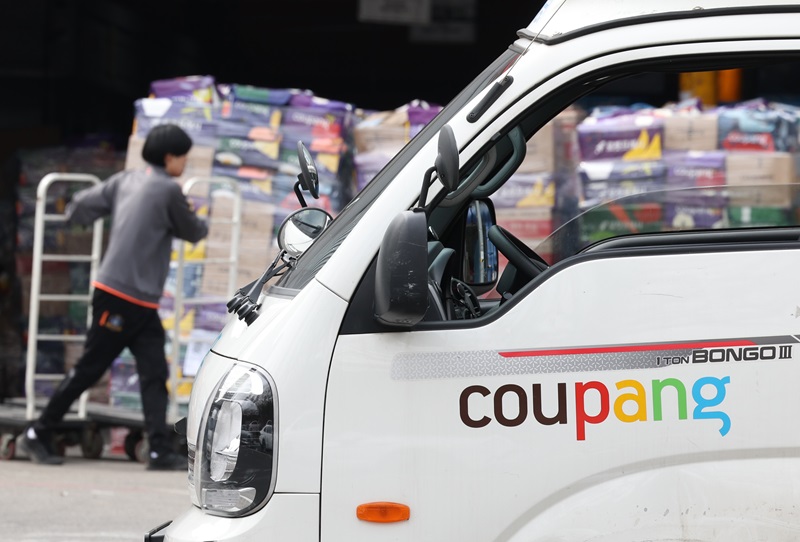Coupang was slapped with a 140 billion won ($102 million) fine by Korea’s Fair Trade Commission (FTC) for manipulating its search results to enhance the visibility of its own brands over competing products.
The FTC decided to file a complaint against the New York-listed e-commerce giant and its subsidiary Coupang Private Label Brands (CPLB) to prosecutors as well, the fair trade watchdog said Thursday in a release.
Coupang strongly pushed back against the outcome, saying that it would take legal action against “the excessive penalty” and “an unfair decision” by the FTC to refer the case for prosecution.
Out of all products sold on Coupang last year, 15,000 items were from the company’s private brands, and 6 million were offered through its direct purchasing service — through which the company directly procures goods to sell to consumers itself as opposed to third-party sellers offering products through Coupang — while 400 to 500 million items were provided by external sellers.
“Coupang and CPLB manipulated the algorithm behind its search ranking and had their employees give favorable product reviews and ratings in order to enhance sales of their private-brand products, conducting deceitful activities by presenting their private-brand products on the top of search results over more than 400 million products from 210,000 sellers on Coupang’s online marketplace,” said the FTC.
According to the regulator, the retail giant manipulated the algorithm from February 2019 to July of last year to give a promotional boost to at least 64,250 items from its private brands or directly purchased by Coupang for retail sales. Among the products that appeared on the top of search results were also those with low sales and items from sellers that promised to pay rebate fees to the e-commerce company.
“Through such an act, consumers were misled into believing that Coupang’s products are better than those from other sellers on the platform as well as into purchasing Coupang’s private-brand products.”
As the largest online marketplace operator in Korea serves as both a platform operator and a seller on its own platform, the FTC suggested that such dual statuses may result in a conflict of interest.
The e-commerce giant, on the other hand, expressed deep dismay with the watchdog’s findings, saying that the FTC decision may lead to the termination of its 3 trillion-won project to implement same- or next-day Rocket Delivery services free of charge nationwide and the 22 trillion-won investment into its direct purchasing service.
“If the FTC decides to ban product recommendation services altogether, all kinds of direct purchasing services, including Coupang’s Rocket Delivery, wouldn’t be possible,” said the company in a statement issued Thursday.
Coupang stressed that “it is globally unprecedented” for the FTC to raise an issue against how products are displayed, saying that the latest decision would serve as a general regulation against all types of private-brand products.
The FTC’s decision to “claim that Coupang’s Rocket Delivery [direct purchasing service] is deceptive is outdated and hinders innovation, disregarding the well-informed choices of consumers in the digital era,” the company argued.
“We are disappointed by the FTC’s unfair decision to impose an overly harsh penalty that exceeds half of the combined amount of fines imposed on the 500 largest companies in Korea last year, and to even refer the case to prosecution, and will file for administrative litigation against the FTC to defend against this injustice.”
BY SHIN HA-NEE [shin.hanee@joongang.co.kr]





